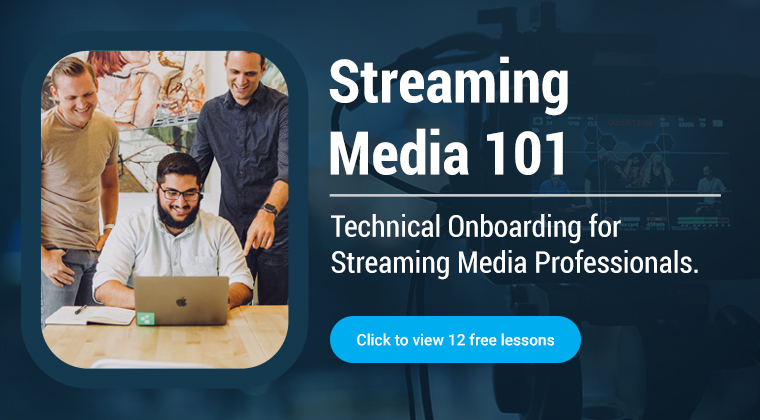Here’s the description; click below to download the handout. This session discusses factors to consider when choosing on- demand enterprise video encoding systems from the likes of Digital Rapids, Elemental, Harmonic, Sorenson, and Telestream. Factors incorporated into the analysis include performance, output quality, quality control options, format support, expansion options, programmability, and other variables. If you’re considering buying an enterprise …
Read More »Choosing a Cloud Encoder
Here’s the seminar description. The presentation video is below the description, and you can download the handout below the video. The session starts by describing what cloud encoding is and how it works for both live and on-demand applications. Then it details the types of applications that work well with cloud encoding, using mini-case studies of actual users. Next, it …
Read More »Understanding the Significance of HEVC/H.265
Here’s the seminar description, and the video is immediately below. Click below the video to download the handout. The most recent video compression standard, HEVC/H.265, was placed into final draft for ratification earlier this year and is expected to become the video standard of choice during the next decade. As with each generation of video compression technology before it, H.265 …
Read More »New VLC Player Release Incorporates HEVC and VC9 Playback
Last week, VideoLAN released VLC 2.1.1, which incorporates HEVC and VCP9 playback on many of the multiple platforms supported by the player, which includes Windows, Mac OS, iOS, Android, FreeBSD, Solaris, Ubuntu, Mint, and multiple flavors of Linux.
Read More »New VLC Player Release Incorporates HEVC Playback
The VLC Player is one of the few programs I have on virtually all computers in my office, because it’s free, it runs on Macs and Windows, and plays almost every format, including H.264 and now H.265. Which is great, because I’ve just started to experiment with HEVC and it’s great to have a player that supports it besides DivX. …
Read More »Review: Onstream Media Webcasting Service
Onstream Media’s webcasting service provides a soup-to-nuts system for broadcasting PowerPoint slides and talking-head video to a computer-based or mobile audience, with interactive elements such as Q&A, polling, and surveys, with registrat
Read More »Elemental Cloud: Streaming Media’s Comprehensive Hands-On Review
Let’s save us both a lot of time. If you’re looking for the cheapest cloud encoding service for low-volume production quantities, skip to the next article; Elemental Cloud isn’t for you. On the other hand, if you’re a high-vol
Read More »Tutorial: Capturing Soundboard Audio for Live Event Video
Connecting your camcorder to an external microphone or soundboard is a critical skill for any event or corporate videographer, though it can be surprisingly challenging, making it an exercise best performed well in advance of the actual live event. I
Read More »Onstream Vs. Livestream: Which Is Better for Online Events?
I recently kicked off six streaming-specific webinars. My motivation? To sell copies of my new book. Rather than market through book reviews and bloggers, I decided to reach out directly to potential buyers with content.
Read More »The Future of HEVC: It’s Coming, but with Plenty of Questions
HEVC is the next-gen compression technology lauded as the enabler for a host of new services and capabilities. I discuss the historical development of HEVC and its technical underpinnings in my article “What Is HEVC (H.265)?” In this article, I’ll briefly review those findings and focus on how quickly HEVC will make a mark in streaming media and OTT markets. …
Read More » Streaming Learning Center Where Streaming Professionals Learn to Excel
Streaming Learning Center Where Streaming Professionals Learn to Excel


